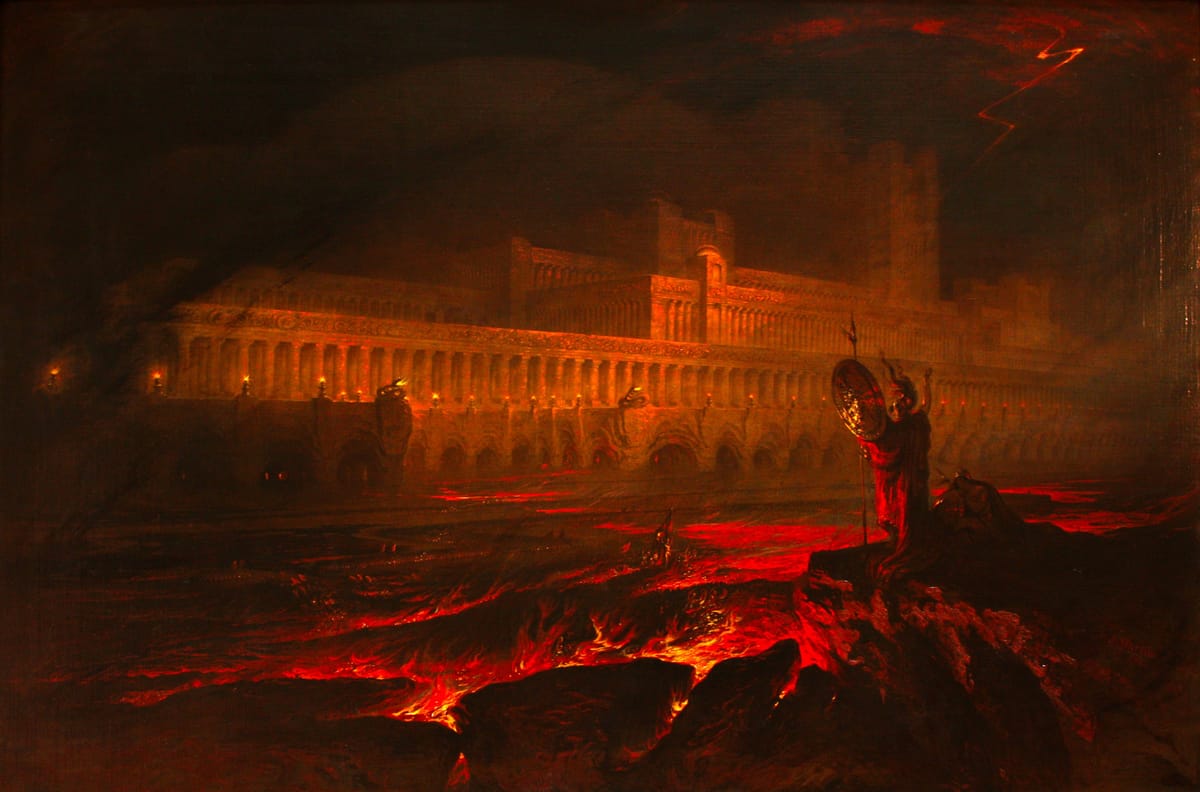Do you believe in evil?
To lose evil is also to lose good – at least, a certain conception of good.

Do you think that evil is real?
When we dig down, we find that many folks do not really believe in evil at all. They will feel anger at what they perceive to be injustice (especially against themselves and their group), but a little further questioning reveals that they cannot articulate what real evil might be. They find that they are merely expressing a negative affect.
Most people take a "therapeutic" stance about such things – evil is simply a matter of perspective, and it can be resolved through a corresponding shift in our own perspective. Many will maintain that evil melts away when we take the time to truly understand others, revealing it for the illusion that it was all along.
We encounter this stance in the psychologist who deems the criminal to be innocent on account of a thorough investigation of their childhood trauma and social circumstances. They are a hurt person hurting other people, the psychologist will say. They cannot be held responsible for their actions.
At a more metaphysical level, the Buddhist attempts to demonstrate that evil is really just the pain of striving against the way that things are. Neither good nor evil is anything more than the passing valuation of the ego which clings to pleasant things but shuns suffering. Nothing can ultimately be evil.
But what could be the stakes of losing evil in this way?
Friedrich Nietzsche urges us to surpass the slave's paradigm of good and evil, and to instead re-discover the master's mode of valuation which considers things simply good or bad in so far as they are experienced as life-affirming or life-denying. Good and evil are therefore defined in their mutual relation. Together they constitute a couplet which either stand or fall together.
Thus, to lose evil is also to lose good – at least, a certain conception of good.
Here we begin to tread upon terrifying ground, for many have turned away from good because of its entanglement with evil. The cost of accepting these two together has to some seemed too high, unbearably so, and they have sought to instead return their ticket to this nightmare carnival ride.
This brings us to another dividing question – can good justify the existence of evil? If good must include evil, then how can it really be good? Can such a thing be called good at all? Perhaps if we dispense with such a good, we may finally overcome evil too.
Ivan Karamazov carries this cry to its uttermost extent in his refusal of "that higher harmony" between evil and good. Commenting on a scenario in which a man who tortured and killed a pregnant woman and her child is reconciled with that same woman in the resurrection --
You see, Alyosha, perhaps it really will happen like that, and I shall live to see it or be resurrected, and then perhaps I too, seeing the mother embracing her child’s torturer will cry out in unison with them, “You are just, O Lord,” but it will be against my will. While there’s still time I want to guard myself against this, and therefore I absolutely reject that higher harmony. It’s not worth one little tear from one single little tortured child, beating its breast with its little fists in its foul-smelling lock-up, and praying with its unexpiated tears to its “Dear Father God!”
It's this "higher harmony" which makes people sick to their stomach, unable to believe in a God who embraces both the torturer and the tortured. It's utterly repugnant to think that God would bestow a miserable and wretched life on an infant murdered in its mother's womb, and that this could somehow be justified by its necessary role in the grand story of the cosmos. We recoil at this thought.
Ivan poses the challenge to his brother Alyosha in the strongest possible terms --
"Tell me honestly, I challenge you – answer me: imagine that you are charged with building the edifice of human destiny, whose ultimate aim is to bring people happiness, to give them peace and contentment at last, but that in order to achieve this it is essential and unavoidable to torture just one little speck of creation, that same little child beating her breast with her little fists, and imagine that this edifice has to be erected on her unexpiated tears. Would you agree to be the architect under those conditions? Tell me honestly!”
Alyosha can only quietly respond that he would not accept those terms. But then how can he worship the God who seemed to architect precisely this arrangement?
This is why theology has been painted for centuries as an exercise in justifying the current state of affairs, whatever that may be. Theology as theodicy, a defense of why God does not act to right the wrongs we see around us, a justification for why people suffer great evils without any apparent recompense or meaning.
St. Paul's words in Romans 9 embody this defense. Backed against the wall, he responds "who are you, oh man, to accuse God? What can the clay say to the potter which has formed it?" Echoing God's reply to Job out of the whirlwind, "where were you when the foundations of the earth were laid?" St. Paul puts the question back to the one who wonders about God's justice in assigning some to blessedness and some to perdition.
But, I think, we should notice that Ivan keeps insisting that the tears of the child are unexpiated (a very precise and theological term). What if they could be expiated though? What if expiation is possible? This is what Dostoevsky is wrestling with in his novel, and it's also what Alyosha comes to an unspeakable understanding of in his ecstatic experience in which he weeps and kisses the earth.
The question of whether evil exists or not then demands a further investigation into the nature and possibility of reconciliation. What is the true nature of this higher harmony which Ivan decries? Must it truly be the way in which he imagines? Can we imagine a different sort of reconciliation, one which does not blot out of the horrors with its saccharine sweetness?
This is an essential task then. We must discover what sort of work reconciliation can be, how it works, and what it can achieve. For, if we turn away from evil precisely because we cannot accept the price of good, we will find ourselves in an utterly cruel and inhuman world.
In a world without evil, we cannot have good.
What's more, we cannot even have reconciliation.

